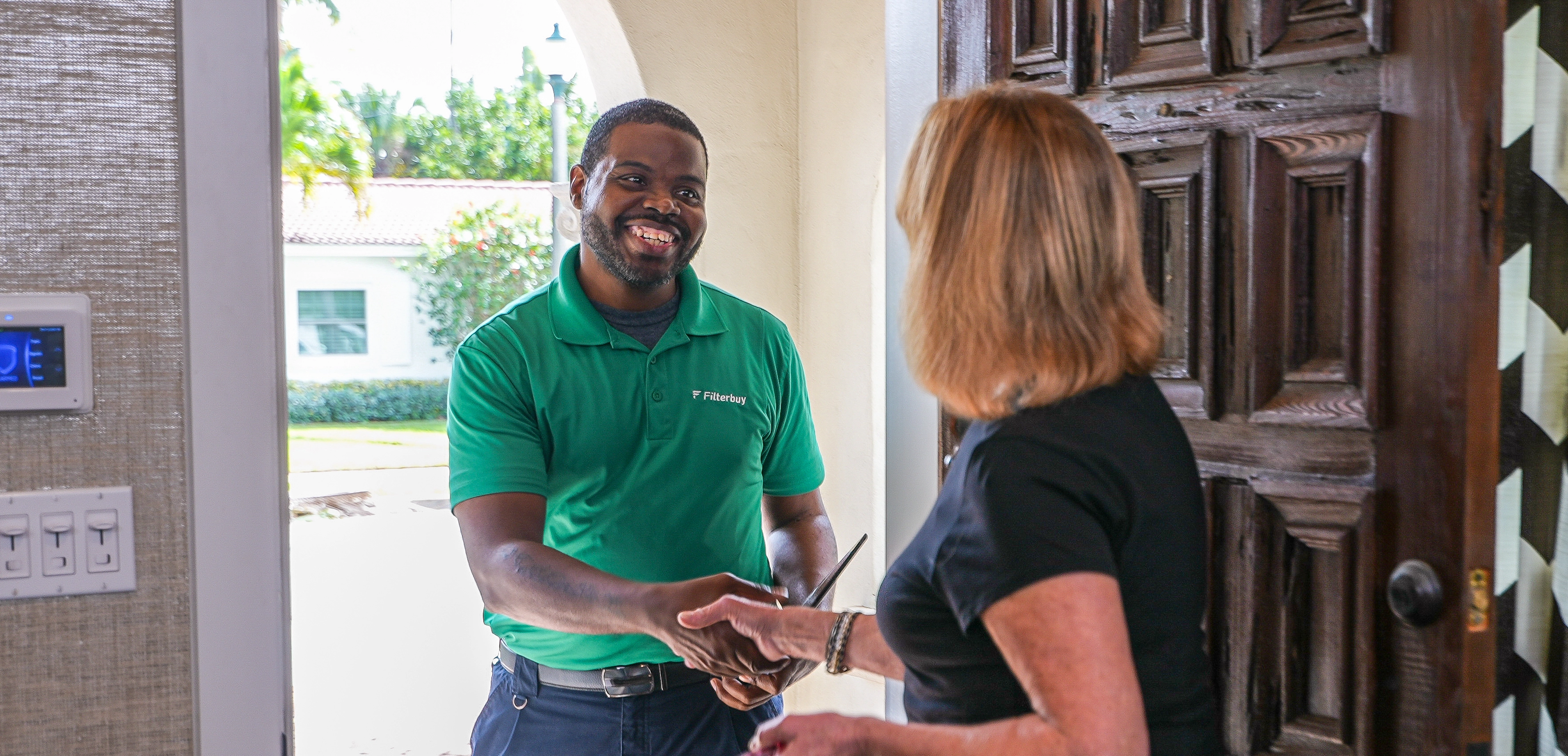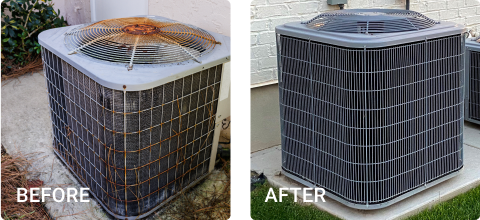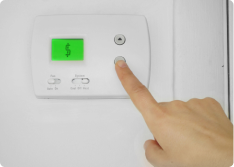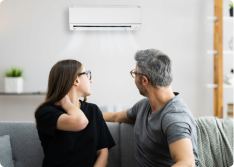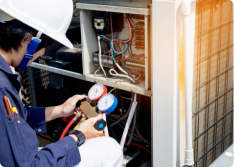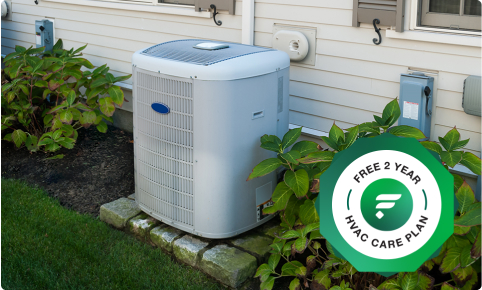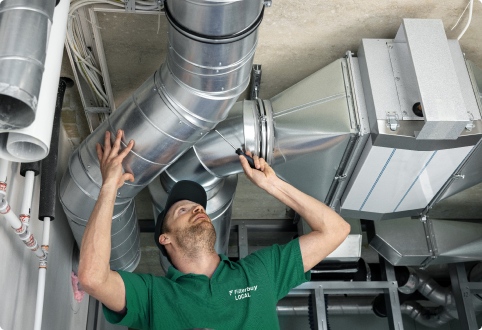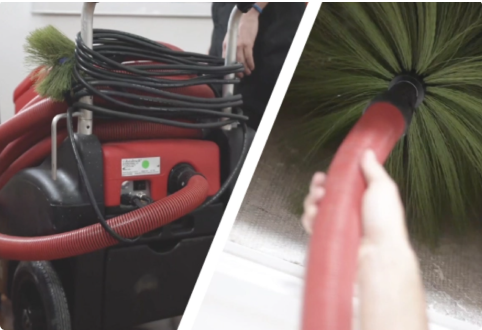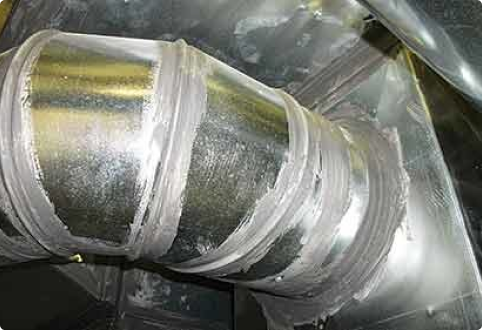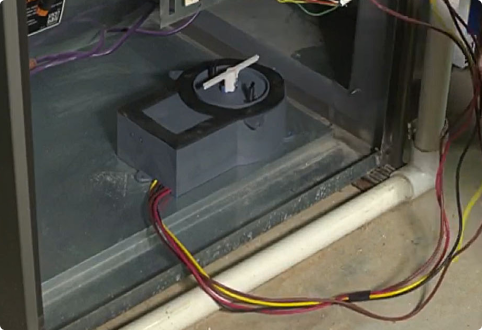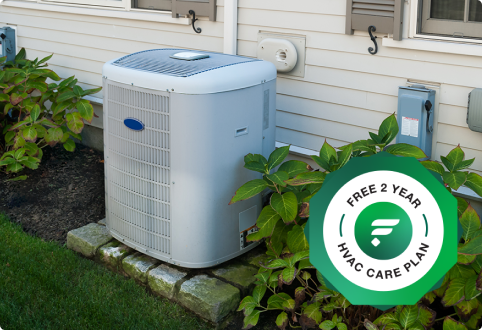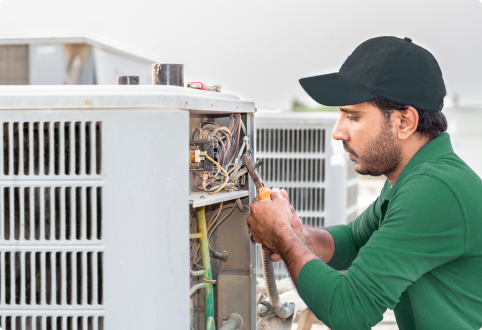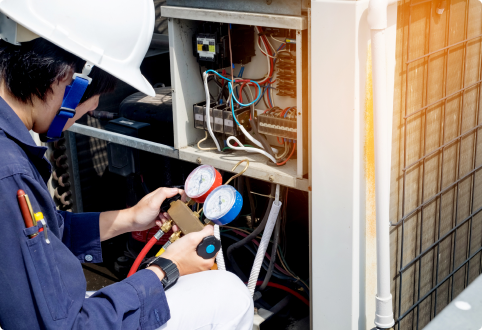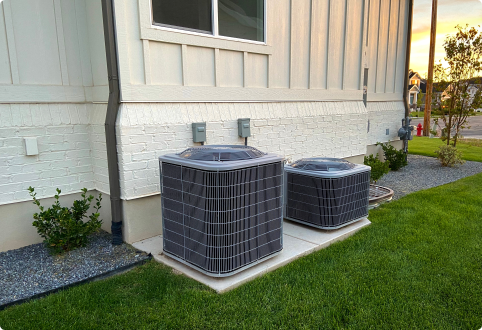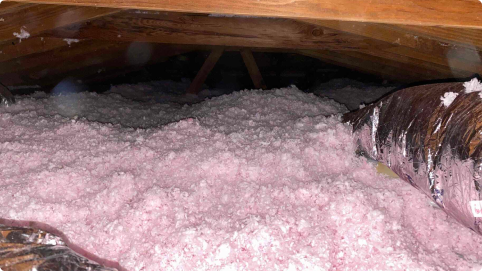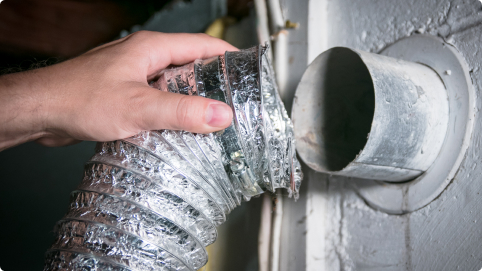Welcome to Filterbuy Local, the best HVAC system replacement service company proudly serving in and near the greater Indiantown, FL area. Please let us know how we can help solve your Indiantown HVAC system replacement needs with professional, affordable, and fast residential and commercial HVAC services by getting a free online quote or by giving our friendly HVAC specialists a call. We look forward to hearing from you!
HVAC Replacement Services Indiantown, FL
In Indiantown, Florida, heating and air conditioning (HVAC) systems are essential components of the home or other structures. Ensuring that these devices operate effectively requires regular maintenance and replacement when necessary.
This article examines HVAC replacement services available in Indiantown, Florida, to provide readers with an understanding of the various options for replacing inefficient or damaged HVAC systems. It will discuss how to select a provider for installation services and describe some cost and quality considerations. Finally, it will explain what is included in typical contracts for HVAC replacement services in Indiantown, FL.
What Is HVAC?
HVAC stands for Heating, Ventilation, and Air Conditioning. It is a system that regulates an indoor space's temperature, humidity, and air quality. HVAC systems are used in residential and commercial buildings to provide comfortable living or working conditions.
These systems employ several components to ensure efficient operation, including furnaces, boilers, heat pumps, chillers, and air conditioners. Each component plays a unique role in maintaining optimal temperatures within the building's interior. Furnaces generate heat via combustion, while boilers use hot water as their thermal energy source. Heat pumps extract thermal energy from outdoor sources like groundwater or ambient air, while chillers cool down warm areas with refrigerants like Freon. Finally, air conditioners deliver conditioned air into the building's interior through ductwork or fan coils.
Combining these components allows HVAC systems to precisely control temperatures so occupants can remain comfortable regardless of external weather conditions. This means improved comfort levels and reduced energy costs due to more effective heating and cooling processes. By properly regulating temperatures throughout the year, occupants can enjoy greater cost savings thanks to optimized efficiency ratings associated with HVAC systems. With this understanding of how an HVAC system works, one can begin exploring the benefits of replacement services in Indiantown, Florida.
Benefits Of Replacement
Replacing an outdated or malfunctioning HVAC system can provide a range of benefits. Firstly, replacing an older system with a newer model will likely improve energy efficiency and reduce monthly utility bills. More recent systems are designed to more effectively regulate temperatures while using less energy. Additionally, investing in replacement services offers the opportunity for greater environmental sustainability.
Modern HVAC systems often have features that allow users to control temperature settings remotely from their smartphones or tablets and adjust usage based on occupancy levels. These features help save energy which reduces greenhouse gas emissions.
Furthermore, a new HVAC system is generally quieter than older models due to advancements in design and technology, making them virtually silent during operation. This creates a much more peaceful environment, unlike some noisier, older models still seen in many homes today. As such, these various advantages make HVAC replacement services an attractive choice for homeowners looking to upgrade their current heating and cooling systems.
The next section discusses the replacement services available in Indiantown, Florida.
Types Of Replacement Services Available
Replacement services for HVAC systems are varied and can encompass several different elements. Depending on the type of system, replacements may include new compressors, motors, fan blades, condensers, or other parts that have worn down over time. Replacement services can also upgrade existing systems to increase efficiency and reduce energy costs. In some cases, entire units may need to be replaced due to age or issues with operation.
When considering replacement services for an HVAC system, it is important to find qualified technicians who are familiar with the make and model of the unit as well as any specific requirements related to its installation and use. They also need to understand local building codes to follow all safety protocols during installation. Before starting any project, the technician should provide customers with detailed estimates regarding the cost of materials and labor.
The quality of service provided by companies offering HVAC replacement services in Indiantown, Florida, largely depends on their experience and expertise. When selecting a company for their needs, customers should look for references from past clients and inquire about guarantees offered on parts and labor. With experienced professionals providing high-quality artistry at competitive prices, homeowners can rest assured knowing that their heating or cooling system will continue running smoothly long after the installation.
Qualified Technicians In Indiantown FL
Indiantown, Florida, boasts several highly qualified HVAC specialists. Customers can choose from the following:
1. Local independent contractors and service providers
2. Major national chains offering services in the area
3. Online businesses that provide installation or repair services remotely
4. Large companies with multiple branches throughout the state
No matter which option is chosen, customers should ensure their technician has met all necessary licensing requirements for working on residential and commercial HVAC systems in Indiantown and any applicable insurance to protect both parties during the job. All technicians should also be able to demonstrate a high level of knowledge about local building codes and safety regulations related to air conditioning system installations and repairs.
Considering these considerations, customers can feel confident they receive quality artistry at a fair price. In addition, it is important to consider installation and maintenance costs when selecting an HVAC contractor in Indiantown, Florida.
Cost Considerations For Installation And Maintenance
According to the US Energy Information Administration, a homeowner may spend up to $20,000 on their HVAC system installation and maintenance. This cost can vary depending on several factors, including unit type and home size. Homeowners must know the potential costs of replacing an outdated or failing HVAC system before taking action.
Installation costs can range from $3,500 to $7,500 based on the chosen model and its specific features. Additionally, labor costs must be considered when budgeting for this project; most installations require two technicians and could cost as much as $1,200 per day for services rendered. Furthermore, some buildings have additional requirements, such as permits, that must be obtained before beginning work, which would add additional fees to the total cost.
The ongoing maintenance expenses associated with owning an HVAC system should also be considered when considering replacement options. Regular cleanings are necessary to ensure efficient operation and peak performance over time; these general checkups typically run around $100 each visit but will help significantly extend the unit's life. Homeowners should become familiar with manufacturer guidelines regarding how often preventative maintenance needs to occur and plan accordingly for those expenses throughout the year.
These considerations are essential for making an informed decision concerning whether it is more practical financially to repair or replace existing systems in Indiantown, Florida. With knowledge about possible expenditure amounts available ahead of time, homeowners can properly prepare themselves when looking at various options regarding HVAC replacements. We will now look at energy efficiency ratings of different systems, offering insight into selecting the best option available in terms of both price point and overall value offered by newer models currently being sold today.
Energy Efficiency Ratings Of Different Systems
When considering an HVAC replacement, energy efficiency ratings should be a major factor in the selection process. Energy Star is a national program that establishes and sets guidelines for the efficient operation of home appliances, including air conditioners and heat pumps. Many homeowners look to Energy Star when selecting their new systems, as it provides a benchmark for comparing different models and brands.
Below are four key points to consider when evaluating energy efficiency ratings:
- An appliance's Seasonal Energy Efficiency Ratio (SEER) measures how efficiently the system will operate over an entire cooling season. The higher this number, the more efficient the unit will be.
- Another important rating is the Heating Seasonal Performance Factor (HSPF). This indicates how well a heat pump operates during winter months. A high HSPF means reduced heating costs throughout the year.
- Air conditioners or heat pumps with variable speed motors give users greater control over temperature settings while increasing utility bills' savings. These models can adjust motor speeds based on current demands instead of running at full capacity all day.
- Some HVAC units have earned special recognition from organizations such as ENERGY STAR for superior performance and low noise output levels. Due to its higher energy efficiency, such equipment may offer additional tax incentives for installation costs and lower monthly operating expenses.
Energy efficiency ratings are only part of making an informed decision about which type of HVAC system would best suit one's needs; other essential features must also be considered when choosing an appropriate model.
Essential Features To Look For In An HVAC System
When selecting an HVAC system, certain features should be taken into account. The efficiency of the heat exchange process is one of the most important factors to consider when installing a new or replacement HVAC system. Additionally, noise levels, temperature control accuracy, and air quality can all play major roles in choosing the best possible unit for your home.
Regarding energy efficiency, some systems may have higher ratings than others due to their design and components used during manufacture. A high Seasonal Energy Efficiency Rating (SEER) indicates a more efficient model; however, this rating does not guarantee optimal performance in every situation. Furthermore, it is important to understand how accurately temperatures will be maintained throughout different seasons and what type of filtration technology has been incorporated into the system's design.
Finally, sound level emissions from modern units are generally much lower than those from older models. However, it is still worth ensuring any potential purchase meets current regulations regarding outdoor noise pollution. With these essential criteria in mind, homeowners can decide which type of HVAC system would best suit their needs and budget while providing maximum comfort and value over time. From here, attention can turn toward local building codes and regulations for HVAC systems in Indiantown, Florida.
Local Building Codes And Regulations For HVAC Systems In Indiantown, FL
The city of Indiantown, Florida, has specific building codes and regulations that apply to installing and operating heating, ventilation, and air conditioning (HVAC) systems. These codes are in place to ensure public safety and energy efficiency while also meeting local regulatory requirements. To comply with these regulations, all HVAC installations must meet certain criteria, such as noise level control, proper sizing for cooling capacity, temperature maintenance, and adequate airflow. In addition, when replacing an existing system or installing a new one, contractors must obtain permits from the City Inspections Department before beginning any work.
To ensure compliance with local laws and regulations for HVAC systems in Indiantown, Florida, contractors should take several steps before installation. First, they must check with local authorities to determine if additional permits or inspections may be required beyond those obtained by the City Inspections Department. Secondly, they need to research applicable state rules governing the operation of HVAC systems, including noise limits set by law. Finally, contractors need to understand how their proposed HVAC system will interact with other mechanical systems within the space served to avoid conflicts.
Understanding and adhering to all necessary building codes and regulations related to HVAC system installation is critical in ensuring compliance with current standards and avoiding costly fines associated with non-compliance. With this understanding comes a responsibility for both contractor and homeowner alike to properly install the equipment to function safely and efficiently while minimizing environmental impact. This leads into our next section exploring the environmental impact of replacing an old system with a new one.
Environmental Impact Of Replacing An Old System With A New One
It's no secret that replacing an old HVAC system can be a huge undertaking – but with the right knowledge and expertise, you can make sure your new system is both efficient and environmentally friendly! While it may seem like a complicated process, having a better understanding of the environmental impact of switching to a newer model will help ensure that you are making responsible decisions regarding energy usage.
Installing a new HVAC unit will reduce emissions released into the atmosphere. Compared to their older counterparts which were not designed for optimal efficiency, modern units use more advanced technology to increase energy savings without sacrificing performance or comfort. As such, these systems produce fewer pollutants than conventional models and have been found to emit up to 30% less carbon dioxide over time. Additionally, they generally require less maintenance due to improved design features. This means fewer trips from technicians who need access to the interior components, resulting in lower fuel consumption and reduced transportation-related greenhouse gas emissions.
Finally, utilizing renewable energy sources further reduces negative effects on our planet's climate. Solar panels and wind turbines are becoming increasingly popular ways of powering homes and commercial buildings; this eliminates the need for non-renewable resources while providing cost savings over time by eliminating traditional utility bills. By investing in one of these alternatives or combining them with other eco-friendly technologies, homeowners can look forward to long-term sustainability benefits while still enjoying all the comforts of life provided by their new HVAC system!
Tips On How To Maintain Your New System
Maintaining a new HVAC system is essential to ensure that it continues to perform at its maximum capacity and efficiency. To achieve this, there are several steps homeowners can take to maintain their systems and extend their lifespan. The first step is performing regular inspections of the unit. This includes checking for signs of wear and tear, such as loose wiring or leaking fluids. It is also important to check air filters regularly, as dirty filters reduce airflow and lead to higher energy costs.
Another way to keep your system running smoothly is by scheduling professional maintenance services with an experienced technician. These technicians can advise on necessary repairs and proper cleaning techniques, which help prevent long-term damage due to dirt buildup or malfunctioning parts. Additionally, they can identify potential issues early before they become bigger problems.
In addition, ensuring that all components are compatible helps maximize system performance while minimizing energy consumption. A qualified technician should be consulted when selecting replacement parts or accessories that may affect the overall operation of the system. By taking these simple steps, homeowners can enjoy the benefits of their HVAC system for years without costly repairs or replacements.
Frequently Asked Questions
What Is The Expected Lifespan Of A New HVAC System?
When it comes to home comfort, one of the most important elements is a reliable HVAC system. Homeowners often ask what's the expected lifespan of their new HVAC system. The answer, however, isn't so straightforward. If you want your HVAC system to last for its full life expectancy, proper maintenance, and regular checkups are key.
Modern air conditioners generally have an average life expectancy of around 15-20 years. Heat pumps tend to last even longer, with an estimated 20-25 year lifespan when properly maintained. Of course, these figures can vary significantly depending on how well you care for them over the years and in which climate they're located. It's also worth noting that if you live in warmer climates like Indiantown, Florida, where temperatures peak during the summer, your units may need more frequent servicing to keep up with demand and achieve maximum longevity.
The type of unit you choose will also play a role in determining how long it lasts before needing replacement; some models come with extended warranties or other benefits that could help extend the lifetime of your equipment beyond its official estimate. Additionally, investing in energy-efficient systems can save money on utility bills while still providing adequate cooling power - this means fewer repairs and lower monthly costs than traditional models. Ultimately, making smart choices about equipment selection can contribute greatly towards getting a better return on investment from your HVAC installation.
No matter what kind of heating or cooling system you select for your home or business needs, taking good care of it through regular cleaning and inspections can help ensure your unit runs efficiently and reliably for many years to come - not just those right after installation!
Are There Any Payment Plans Available For Replacing An HVAC System?
Replacing an HVAC system can be costly and is often necessary to maintain comfortable temperatures in the home or business. As such, many people want to know what payment plans are available for replacing their existing systems.
There are several options for paying for new equipment, depending on individual circumstances. For instance, some companies offer financing with low monthly payments that can help spread out the cost of a replacement over time. Additionally, certain programs may provide tax credits or rebates if energy-efficient models are purchased. Lastly, those with emergency funds set aside may use them as upfront costs towards buying a new unit.
It is important to remember that while finding ways to pay for a replacement HVAC system can feel daunting, understanding all available options can help make the process easier and more affordable. Considering one's budget and financial situation will allow homeowners and business owners to find the best option when selecting a payment plan for their next HVAC system purchase.
Are There Any Tax Incentives For Replacing An Old HVAC System?
Replacing an old heating, ventilation, and air conditioning (HVAC) system can be costly. As such, many people may wonder if any tax incentives or other financial benefits are available to help offset the cost. We will now explore the tax incentives available when replacing an HVAC system to determine whether this option is viable for users who need to replace their systems but have limited funds.
To begin with, it should be noted that tax incentives vary from state to state and even within individual counties, depending on local regulations. Therefore, one must research what their particular area offers before taking advantage of these incentives. Additionally, some areas require specific qualifications beyond simply owning an older model HVAC system to qualify for these deductions or credits, such as installing energy-efficient models instead of standard technologies.
Incentive options typically come in two forms: direct monetary savings or tax credits, which still offer substantial savings toward the replacement project. For example, certain states may provide direct rebates after purchase. In contrast, others might issue tax credits against future income taxes incurred during the current or subsequent years, allowing owners to reduce their taxable income. Furthermore, through federal programs like ENERGY STAR®, homeowners may receive additional benefits, including lower utility bills due to more efficient operation throughout their new unit(s) life cycle.
In summary, numerous options are available when looking into how best to financially approach a necessary replacement of an HVAC system without breaking the bank. From researching local ordinances regarding regulation changes and eligibility requirements up through understanding Federal program offerings like ENERGY STAR®, users have access to various resources designed specifically to help them save money with these large purchases. With proper planning and knowledge gathering, anyone purchasing a new HVAC system should expect to see significant savings over doing so without taking advantage of applicable incentivizing programs and initiatives currently offered throughout much of today's marketplaces.
What Are The Maintenance Requirements For A New HVAC System?
Maintaining a new HVAC system is essential for keeping it in top running condition. The maintenance requirements can vary depending on the type of system used and the environment it operates—generally speaking. However, certain standards should be followed to ensure the optimal performance and longevity of any HVAC system.
The most important part of regular maintenance is cleaning or replacing air filters every few months. This helps keep dust and other airborne particles from clogging up the unit's inner workings and reducing efficiency. Additionally, checking belts, blowers, condenser coils, and evaporator coils regularly helps prevent system damage due to wear and tear. It is also recommended to have an experienced technician inspect the entire unit at least once a year for any potential problems before they become more serious.
Finally, ensuring all components such as ducts, vents, and grills are adequately sealed off will help reduce energy usage while improving the air quality inside the home or office space by preventing outside pollutants from entering through small gaps or holes in the ventilation system setup. Taking these steps can not only extend the life of your HVAC system but provide cost savings related to energy bills over time.
How Can I Ensure That My New HVAC System Is Energy Efficient?
When replacing an existing HVAC system, it is important to consider how best to ensure the new unit is energy efficient. An inefficient system can increase monthly utility bills, leading to high costs. To maximize efficiency and reduce long-term costs, homeowners should take certain steps in selecting a new unit and partnering with a reliable contractor for installation.
For example, a family in Florida needed to replace their aging air conditioning system due to regular breakdowns and increasing electricity bills. After researching options, they decided on a modern heat pump that could cool and heat their home while operating efficiently. However, this was only part of the solution, as they needed a competent contractor who could properly install the new system according to industry standards.
To find such contractors, homeowners should look for companies licensed by the state or local authorities, have credible references from past clients, display evidence of insurance coverage, and offer transparent pricing structures before signing any contracts. It may also be beneficial for customers to ask potential contractors about additional services, such as extended warranties and maintenance plans offering greater peace of mind when investing in expensive systems.
By taking these precautions, families like those in Indiantown can protect themselves against poor-quality artistry and substandard parts and ensure their newly installed HVAC system will continue to operate efficiently for many years ahead.
Conclusion
Installing a new HVAC system in Indiantown, Florida, is an important and necessary task for any homeowner. Today's systems are more energy efficient than ever due to technological advances, with an average lifespan of 12-15 years if properly maintained. Before making this investment, homeowners should be aware of their options when it comes to payment plans and tax incentives that may be available. Additionally, proper maintenance is essential to ensure the longevity and efficiency of the unit; regular filter changes and annual inspections can help prevent unnecessary repairs or replacements.
It is estimated that homes upgrading from pre-2006 models to more modern ones could save up to 20% on their energy bills each year. This statistic makes upgrading worthwhile as it will pay for itself over time through better efficiency and lower monthly costs. Furthermore, these savings extend beyond just financial ones; using less energy every month reduces your carbon footprint, which benefits everyone in the long run.
Overall, replacing an old HVAC system with a newer model in Indiantown, Florida, is a great way to both improve comfort levels at home while saving money on energy bills and helping the environment at the same time. By researching all available payment plans and maintaining their units regularly, homeowners can ensure they get the most out of their investments while enjoying maximum efficiency throughout their lifetime.

.webp)
.webp)
.webp)
.webp)






